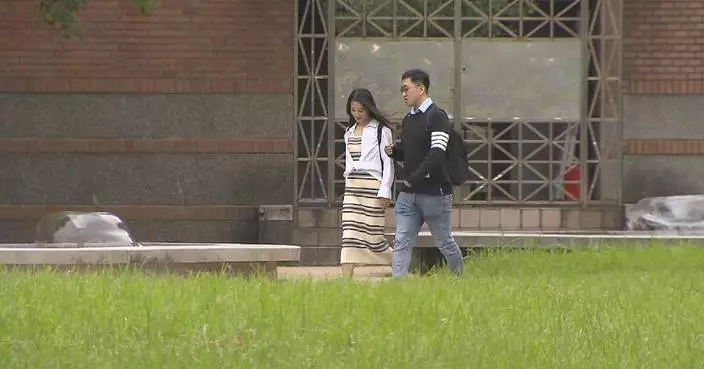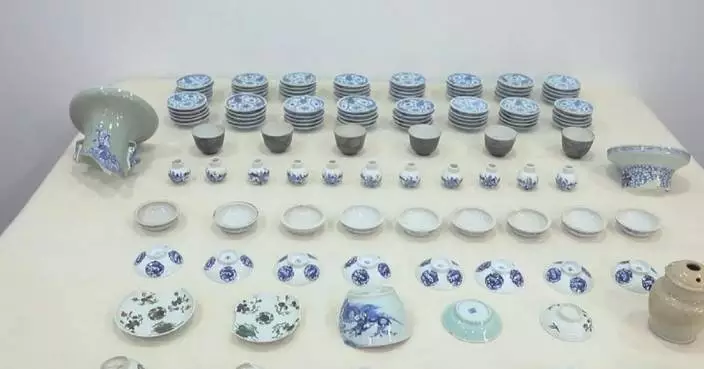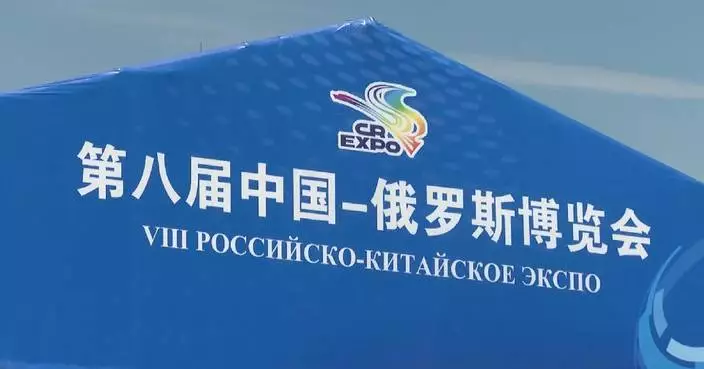Former deputy managing director of the International Monetary Fund (IMF) Zhu Min said China and France should enhance international cooperation and promote multilateralism in the face of mounting global challenges.
During an interview with China Global Television Network (CGTN), Zhu, also vice chairman of China Center for International Economic Exchanges, said there are many potential areas in which the two countries can expand collaboration and strengthen economic ties.
"China-France trade increased 800 times since we established the diplomatic relationship. But it still is only 80 billion U.S. dollars, 80 billion U.S. dollars means it's only one third of U.S.-Germany trade," said Zhu.
He said that France is excelling in advanced technology and agricultural research, while China leads in green manufacturing, creating massive opportunities for cooperation and trade.
"France is advancing many advanced technologies in terms aviation, space, instruments, [and] Artificial Intelligence. And also, France is a big agri-country [and] is really advancing the research in agriculture. So, [we are speaking of] seeds and soil and the climate and issues in environmental ecosystems and a lot of things [which they] can do. And also both sides can work for third party cooperation, particularly, for example, in Africa. Meanwhile, in the past decade, China grows strongly in manufacturing. China's really leading the whole world in green manufacturing in terms of EV, battery, solar, windmills, high quality, reasonable price, which is exactly what France and Europe need to achieve their climate goal,”Zhu said.
Zhu highlighted the importance of the two countries continuing to champion multilateralism, as it will help boost global trade and bring about prosperity.
"Well, China and France are both a strong voice for multilateralism in the past. I'm sure they both have a strong voice today and will be for the future, and this has become ever clear that multilateralism is the only framework we can live [with, as it helps us work together]," said Zhu.
Chinese President Xi Jinping left Beijing on Sunday morning for state visits to France, Serbia and Hungary at the invitation of President Emmanuel Macron of the Republic of France, President Aleksandar Vučić of the Republic of Serbia, and President Tamás Sulyok and Prime Minister Viktor Orbán of Hungary.

Former IMF deputy chief calls for enhanced China-France cooperation
Chinese scientists have recently worked together and rebuilt the face of an ancient Chinese ethnic minority emperor via cutting-edge DNA technology.
Emperor Wu of the Xianbei-led Northern Zhou Dynasty (557-581), also known as Yuwen Yong, was an ambitious leader who died at 36. He belonged to the Xianbei nomadic group, which originated from the Mongolian Plateau.
The tomb of the emperor was discovered in 1993 in a village of the city of Xianyang in northwest China's Shaanxi Province. His skull and bones were discovered during an excavation held in 1994 and 1995 at the site of his tomb.
In late March this year, scientists led by the Shaanxi Provincial Institute of Archaeology and the Institute of Archaeological Science of Fudan University managed to decode key features of the emperor and speculate about his cause of death. The emperor might have died from chronic arsenic poisoning due to long-term use of a pellet, which was believed by ancient people to achieve eternal life.
"First, the skeleton can be used to determine age. Second, in terms of age and gender, some pathological research can also be done to see if he had any fractures or other (diseases)," said Zhang Jianlin, a researcher from the Shaanxi Provincial Institute of Archaeology.
Obtaining high-quality genomic data is crucial for restoring the face. Through DNA paleogenomics techniques and optimized DNA extraction, database building and capture methods, more history was revealed.
"First, we have done the shorter fragments enrichment method, which is a DNA extraction method. In addition, we have developed some more sensitive database building method suitable for ancient samples with short fragments. You can regard it as a method to amplify the genetic signal, the extracted DNA. The third is that we have developed a capture method that is more suitable for this kind of highly degraded ancient samples. So we have optimized and improved our approach from three aspects at the same time," said Wen Shaoqing, an associate professor of the Institute of Archaeological Science of Fudan University.
The reconstructed face showed that Yuwen Yong had black hair, yellow skin and brown eyes, while his appearance was typical for people from East or Northeast Asia.
Wen said that with the help of the DNA technology, the accuracy of facial restoration can reach 90 percent.
"As for the accuracy of (facial restoration), the current situation is that if there is a skull as a basis, its accuracy will be relatively high," said Wen.

Scientists rebuild face of ancient emperor using advanced DNA technology










